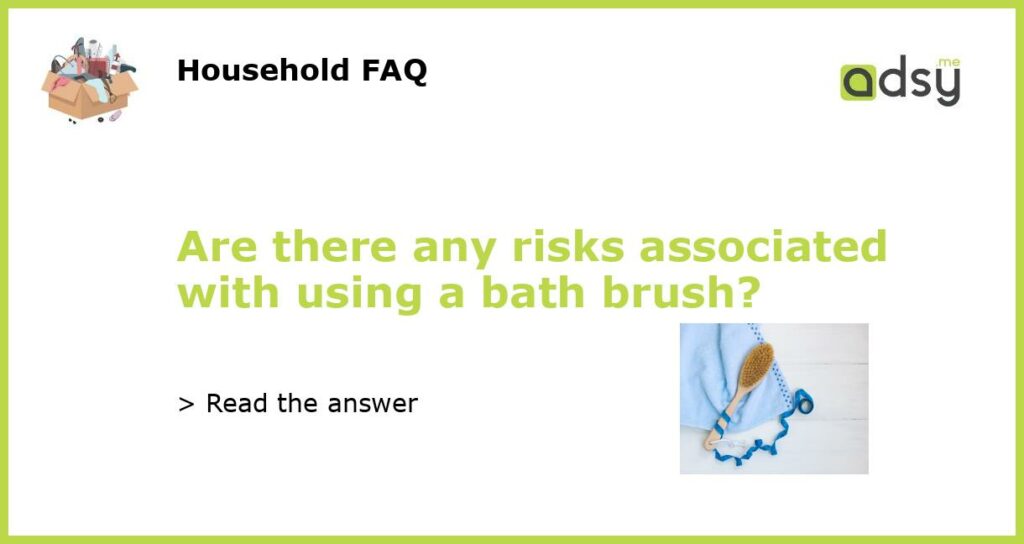Bath Brush Usage
Bath brushes have been around for centuries and are used by individuals to exfoliate and cleanse their skin. They come in various shapes, sizes, and textures, making them perfect for different body types and skin types. However, like anything else, there are potential risks to using a bath brush that individuals should be aware of before using them.
Possible Risks Associated with Bath Brush Usage
While bath brushes offer numerous benefits, including all-over cleanliness, relaxation, and opening pores, they also have risks that everyone should take note of. It’s important to note that these risks vary based on how often an individual uses the brush and the type of brush used. However, some of the risks that come with using a bath brush include:
Skin Irritation
Individuals with sensitive skin types may experience skin irritation after using a bath brush, resulting in itching and redness. According to medical professionals, you should avoid using brushes with stiff, rough, or synthetic bristles that can do more harm than good. It is also possible to irritate the skin through overuse.
Bacterial Infections
Bath brushes provide an ideal environment for bacterial growth, especially when not dried or cleaned correctly after use. According to a study in the Journal of Clinical Microbiology and Infection, people who share bathrooms with others are more likely to harbor bacteria that could cause infections after sharing bath brushes. It is essential to clean the brush thoroughly after use and replace it regularly to prevent bacterial growth.
Broken Skin or Abrasions
Individuals should avoid using bath brushes over broken skin or abrasions as they can cause further irritation or worsen the condition. Under no circumstances should you utilize a bath brush if you have a skin condition that causes open wounds or bleeding, as it can result in infection or inflammation.
Risk of Bleeding
Be cautious while using bath brushes, especially the stiffer brush types, as they could result in bleeding if used incorrectly or with too much force. It is essential to apply the brush gently and gradually increase pressure gradually.
Risk of Allergic Reaction
Individuals with allergies should avoid synthetic brush types as they can cause an allergic reaction. Symptoms can include minor rashes or swelling, but in extreme cases, it can cause anaphylactic shock.
Bath Brush Usage Risks
In conclusion, using a bath brush can be beneficial for your skin’s health, but it comes with potential risks. It’s essential to take note of these risks and the methods to prevent them, including cleaning the brush regularly and replacing it frequently. Furthermore, individuals should be aware of their skin types and any underlying skin conditions before using a bath brush.






